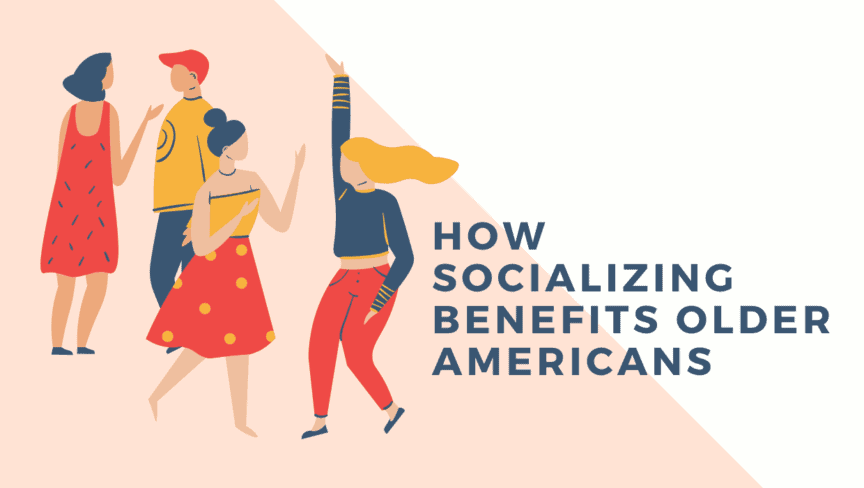Social engagement is critical not only during early stages of identity development, but throughout our lives. Healthy relationships and interaction with others continues to shape who we are as learning and growing are lifelong processes. Physical exercise is often emphasized as a major component of health. But another aspect of maintaining overall health and wellness is social engagement. Social wellness encompasses our ability to form and nurture relationships in addition to engaging in activities that
Changes Older Adults Experience
As older adults age, they can experience a range of new circumstances and changes to their health and lifestyle. These changes can include:
-
- Reduced physical mobility: caused by aging or medical conditions that impacts physical mobility. This may require the use of assistive devices (wheelchair, cane, etc.).
- Medical conditions: older adults experience an increased risk of developing various medical conditions including hearing loss, dementia, arthritis etc. These conditions may require medications, therapeutic interventions, devices such as hearing aids etc.
- Retirement: the average retirement age is 62. Retirement is a major event in a person’s life that drastically changes routine, schedule, and how one spends their time.
These changes can complicate and alter the way people relate to the world as the ways they have been living drastically shift. They may need the assistance of others as they navigate daily life and/or be living in a completely new environment and are surrounded by new people. This can be emotionally and physically challenging to cope with. New realities and significant change is often difficult to adjust to. Being socially active can profoundly help older adults navigate these complex circumstances healthily and with more ease.
Benefits of Being Socially Active
Social engagement can significantly improve mental and physical health. Enhanced wellness helps people navigate the transitions in their life by:
- Creating a Sense of Belonging: major life changes like retirement, fundamentally changes how a person spends their time and can challenge their sense of self. Routines practiced for a number of years can end, what feels like abruptly which can be disorienting and stressful. Building relationships, engaging in new activities, and developing hobbies can provide purpose and help people feel connected to their community.
- Providing Support System: cultivating relationships and community also builds support systems that provide a wealth of helpful resources including emotional support, space for conversations, advice etc. Support systems are incredibly helpful while navigating the complexities of life.
- Improving Health: participating in social activities keeps the body and brain energized which is great for emotional and physical health. Developing hobbies and pursuing interests also fosters independence and allows people to develop and practice new skills. This strengthens wellbeing and quality of life.
Ways to be Socially Active
There are numerous ways you can be socially active. It is common to feel anxious or overwhelmed about starting something new. But there are a variety of organizations that are always looking for new people to get involved. There are also several spaces that aim to engage and build community with older adults including recreation centers, gyms, and schools. A few ways you can get involved and be socially active include:
- Volunteer: helping others and contributing to your community is a great way to spend your time. Volunteering allows you to connect with others and make a positive impact. Various places are always looking for volunteers – schools, community centers, museums, food banks etc.
- Join Club: identify the things you enjoy, interests you have always wanted to pursue, or topics you are curious about and join a club or group that is dedicated to exploring it! This could include reading, cooking, sports etc. Joining a club is a wonderful way to meet others who share similar interests as you.
- Take a Class: community centers and/or colleges often offer continuing education programs and courses for older adults. Taking a class is a great opportunity to continue learning, develop new skills, and challenge yourself!
- Join Fitness Center: gyms typically offer fitness classes for older adults like water aerobics and yoga which are useful ways to stay physically active.
Having a dynamic social life adds to the vibrancy of life. It keeps people engaged and excited which can be particularly beneficial for older adults who are experiencing so much change. For a comprehensive hearing test, contact us today!

